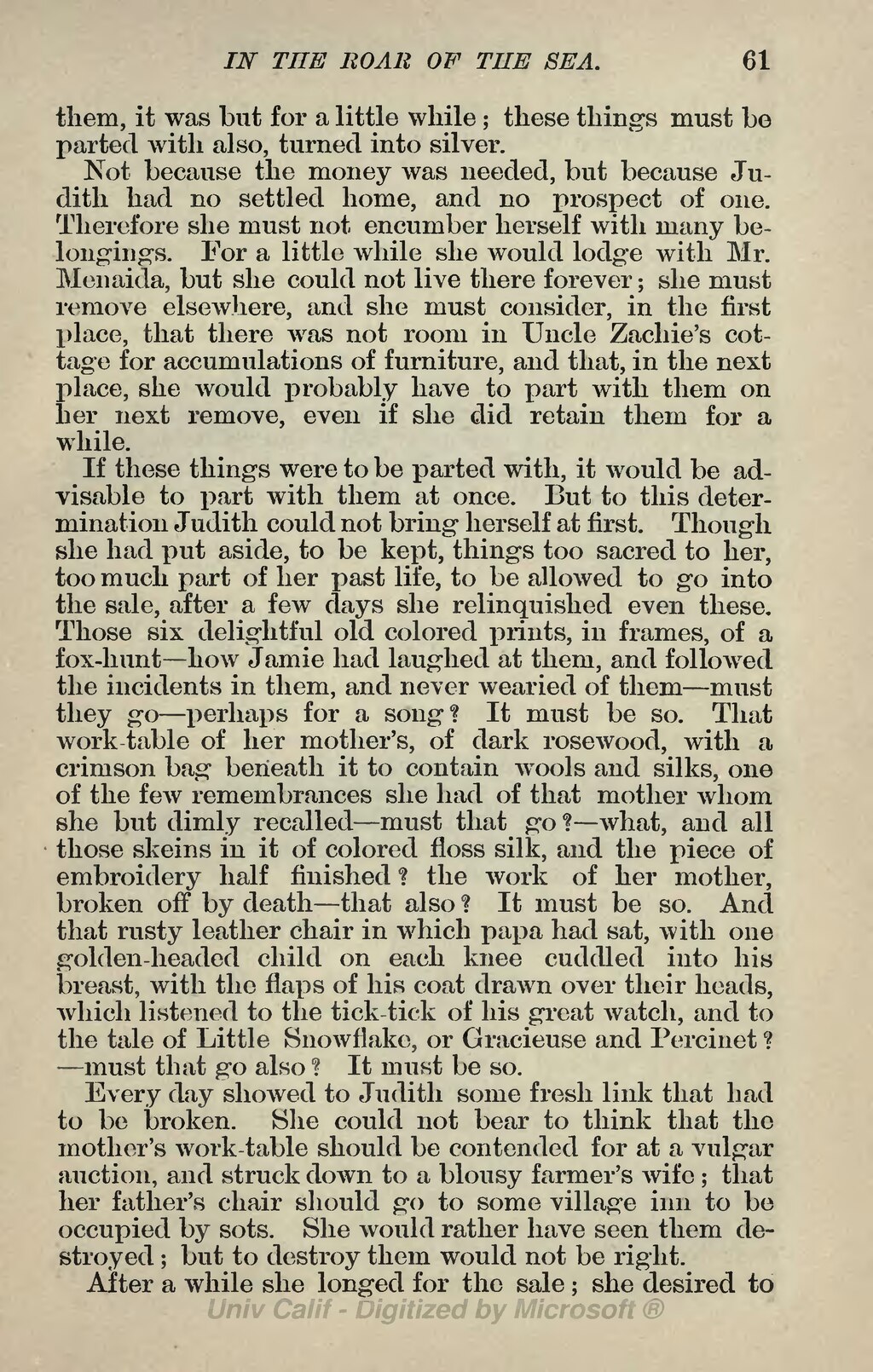them, it was but for a little while; these things must be parted with also, turned into silver.
Not because the money was needed, but because Judith had no settled home, and no prospect of one. Therefore she must not encumber herself with many belongings. For a little while she would lodge with Mr. Menaida, but she could not live there forever; she must remove elsewhere, and she must consider, in the first place, that there was not room in Uncle Zachie's cottage for accumulations of furniture, and that, in the next place, she would probably have to part with them on her next remove, even if she did retain them for a while.
If these things were to be parted with, it would be advisable to part with them at once. But to this determination Judith could not bring herself at first. Though she had put aside, to be kept, things too sacred to her, too much part of her past life, to be allowed to go into the sale, after a few days she relinquished even these. Those six delightful old colored prints, in frames, of a fox-hunt—how Jamie had laughed at them, and followed the incidents in them, and never wearied of them—must they go—perhaps for a song? It must be so. That work-table of her mother's, of dark rosewood, with a crimson bag beneath it to contain wools and silks, one of the few remembrances she had of that mother whom she but dimly recalled—must that go?—what, and all those skeins in it of colored floss silk, and the piece of embroidery half finished? the work of her mother, broken off by death—that also? It must be so. And that rusty leather chair in which papa had sat, with one golden-headed child on each knee cuddled into his breast, with the flaps of his coat drawn over their heads, which listened to the tick-tick of his great watch, and to the tale of Little Snowflake, or Gracieuse and Percinet?—must that go also? It must be so.
Every day showed to Judith some fresh link that had to be broken. She could not bear to think that the mother's work-table should be contended for at a vulgar auction, and struck down to a blousy farmer's wife; that her father's chair should go to some village inn to be occupied by sots. She would rather have seen them destroyed; but to destroy them would not be right.
After a while she longed for the sale; she desired to
